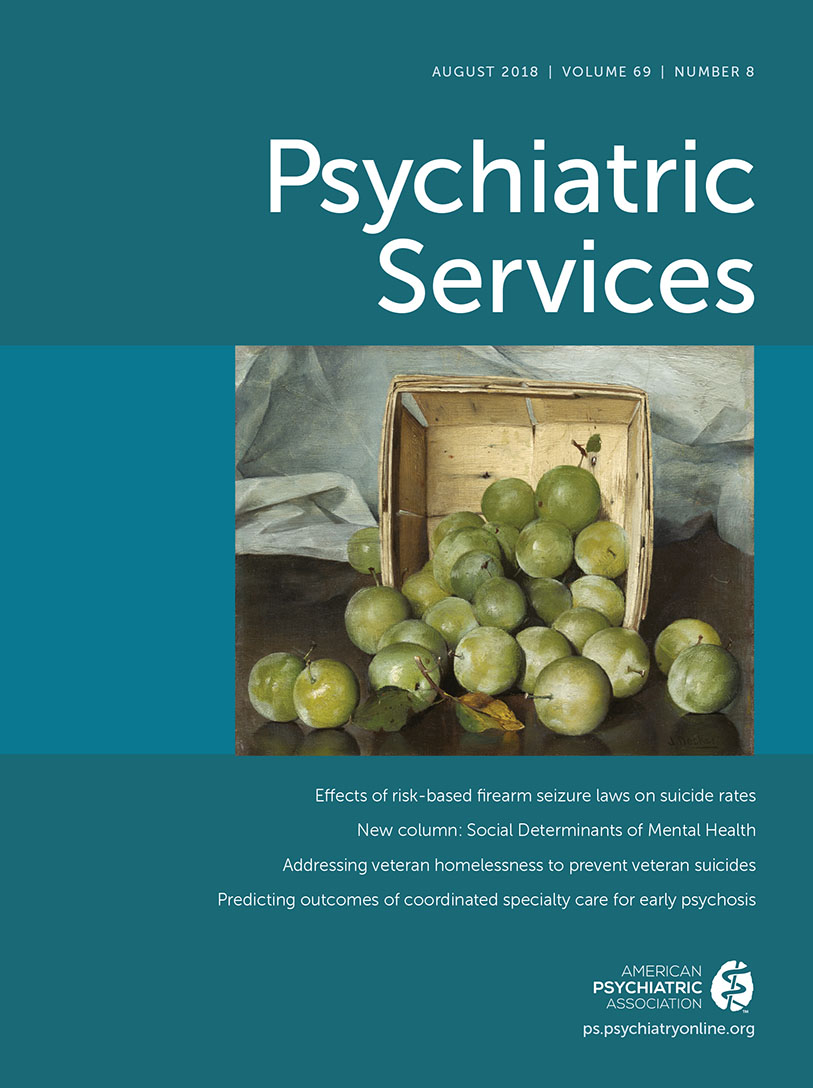Results of a Coordinated Specialty Care Program for Early Psychosis and Predictors of Outcomes
Abstract
Objective:
This study prospectively evaluated outcomes of OnTrackNY, a statewide coordinated specialty care (CSC) program for treatment of early psychosis in community settings, as well as predictors of outcomes.
Methods:
The sample included 325 individuals ages 16–30 with recent-onset nonaffective psychosis who were enrolled in OnTrackNY and who had at least one three-month follow-up. Clinicians provided data at baseline and quarterly up to one year. Domains assessed included demographic and clinical characteristics, social and occupational functioning, medications, suicidality and violence, hospitalization, and time to intervention. Primary outcomes included the symptoms, occupational functioning, and social functioning scales of the Global Assessment of Functioning (GAF), as adapted by the U.S. Department of Veterans Affairs Mental Illness Research, Education and Clinical Center; education and employment status; and psychiatric hospitalization rate.
Results:
Education and employment rates increased from 40% to 80% by six months, hospitalization rates decreased from 70% to 10% by three months, and improvement in GAF scores continued for 12 months. Female gender, non-Hispanic white race-ethnicity, and more education at baseline predicted better education and employment status at follow-up.
Conclusions:
Individuals with early psychosis receiving CSC achieved significant improvements in education and employment and experienced a decrease in hospitalization rate. Demographic variables and baseline education predicted education and employment outcomes. CSC teams should make particular effort to support the occupational goals of individuals at increased risk of not engaging in work or school, including male participants and participants from racial and ethnic minority groups.




